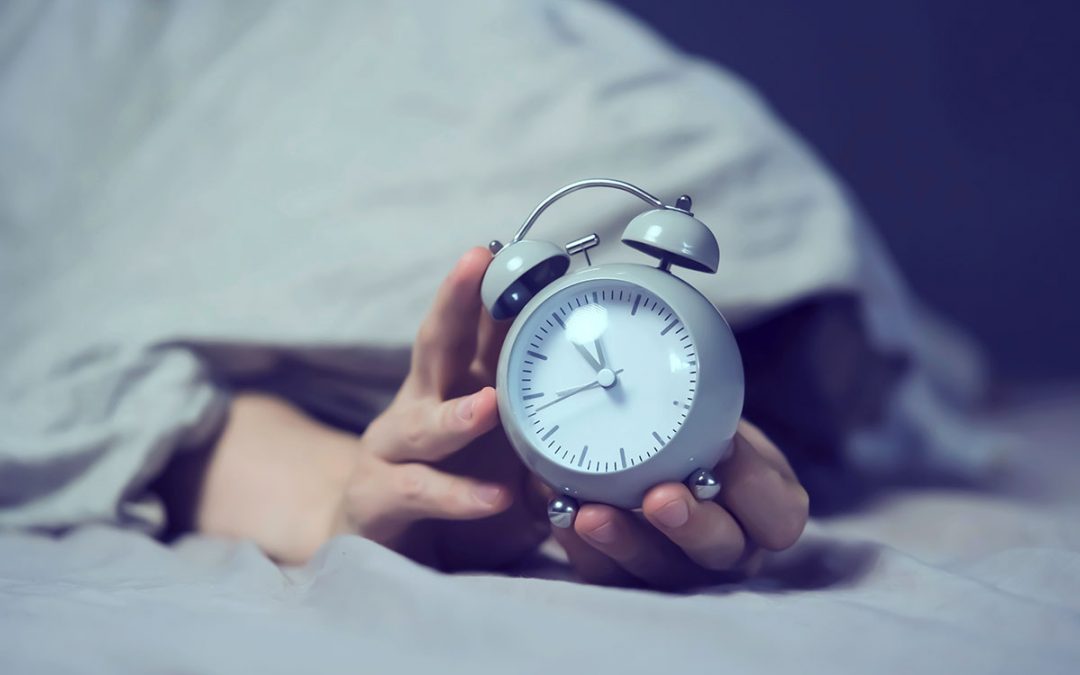When I first began doing research, years ago, into the workings of the inner mind, I learned that a famous hypnotist, Harry Aarons, wrote a booklet called “How to Develop an Alarm Clock Mind”. It was put out by “Power Publishers” and had a copyright date of 1948 on the front cover. Since I had heard that a person could use their mind to wake themselves up and I really didn’t know how that was done, or even if it were possible, I was intrigued and told my husband about it. Always on the look out for little ways to thrill me, he searched and searched for that booklet, found it, and presented it on my birthday. It quickly became my favorite gift that year.
Definitely one of the original copies, it came taped between two pieces of cardboard so it wouldn’t fall apart. It was yellowed, tattered and type written. On the back cover was an offer for a subscription to Hypnosis Magazine, “An illustrated semi-technical quarterly of hypnotism in all its phases”. The subscription was only $3.00 for an entire year.
The actual booklet was several pages just stapled together. It gave several methods for developing your mental alarm clock. Interestingly, the booklet never went into any detail about hypnosis, but spoke more about methods of “training your mind to wake you at any predetermined time of day or night, sometimes even to the exact minute, without using an alarm clock.”
One of the things I had to wonder about, honestly, is why anyone would want to use their minds to wake up. I mean, that is what alarm clocks and our cell phones are for these days. Pushing that thought aside, I read on, Mr. Aarons said that waking up with the “jingle of an alarm bell” shocked the nervous system, because it “jarred (you) from deep slumber”. I couldn’t help, but wonder what he would have thought of all the awesome new ring tones, soothing sounds and music we have available to wake us up with now.
Still interested, though, I read on and a very real benefit of using the mind as an alarm clock caught my attention. Mr. Aarons said that when alarms go off you are only partly awake because the alarm, often times, catches you in the middle of a sleep cycle. So, when you wake up you are tired, bleary-eyed, irritable, and maybe even nervous or grouchy. He said that this can go on for hours before someone finally gets a good grip on themselves.
Harry Aarons went on to say, it makes sense to train your mind to wake you up because using your own mind will cause your sleep cycle to be adjusted around the time you have set your internal clock for. Thus, you’ll wake up rested and refreshed. I began to wonder if alarm clocks could really be the reason why so many people complain of not being “morning people”? It was a fascinating thought!
As I continued to muse over the benefits of training one’s mind like this, I thought of two other reasons this ability may benefit people. For instance, 1) This could be very useful if you have a partner who gets up later than you do and you don’t want your alarm to wake them up. And 2) A person may be less likely to hit the “snooze” button and more likely to actually get up and out of bed when they really want to. After all, they’d be awake and refreshed, not bleary-eyed and mournful of having to rouse themselves.

So, how do you do it? The way I thought to be most practical for setting your mind like an alarm clock seemed to be quite easy. According to the booklet, all you had to do is 1) make note of the current time from a nearby clock. This is important because the subconscious has to know the time you are going to sleep so it can count the hours correctly as they tick by. 2) Make yourself ready for sleep, get comfy. 3) THINK of the time you want to wake up. Let’s say it’s 7am. Then you just take a few moments to dwell on that time. Think something like the following (in your mind) “I’ll get up at 7am. I’ll get up at 7am sharp. I’ll get up at 7am in the morning. I’ll feel refreshed and rested and awake at 7am in the morning. 7am in the morning is when I’ll get up. I’ll just open my eyes, yawn, and stretch and get out of bed. It will be exactly 7am on the dot. I’ll sleep soundly all night and promptly get up at 7am in the morning. Seven……seven am…..seven am…..”
I read this to my hubby as we lay in bed. Once I told him I was going to try it, he said something disturbing, “I’ve been using my mind for an alarm clock for years, and I don’t do it that way.”
With that, I sat up in bed, and leaned over, my nose close to his husbandly face and said, “Well, Mr. Smarty Man, YOU are not an expert hypnotist, and if it’s good enough for Harry, it’s good enough for me.” Not exactly the jealous type, he shrugged, smiled and rolled over.
I sighed and began my auto-suggestion. “7am……7am….7am……”
I woke up at 8am. EIGHT AM? I yanked the document from my night stand and looked over it very seriously. What could I have possibly done wrong? Then I saw it. “Some people succeed in a few days others it may take one to two weeks”. Two weeks! I didn’t want to wait two weeks. All of a sudden I was becoming more and more curious about my husband’s method. I timidly asked him to share it with me.
As luck would have it he was in a sharing mood even though I called him Mr. Smarty Man. He said if you want to get up at 7am you hit your head on your pillow 7 times. Then, while pointing your finger in the air, you declare intensely, “I will get up at 7am!” Next you forget about it and go to sleep.
“That just sounds too easy!” I cried. “Come on!”
“No, really. That’s the way I do it.”
“You bang your head on a pillow?”
“Yes.”
I laughingly asked, “Well, what if you want to get up at 7:15 or 7: 30?
“Then I just say, “Plus 15” or ”plus 30.”
I laughed again, but when he wasn’t looking, my eyes narrowed and I thought, “I’m trying that tonight.”
Sure enough I did try it, and dang sure enough I did wake up at 6:48M! Now NOT at 7am, but that’s okay because Mr. Aarons said you will likely wake up early at first. He said, also that you should set your alarm clock at first for a few minutes later than you want to get up , just in case your mind doesn’t get it right at first. So keep all of that in mind.
I thought this was so cool that I started training my clients in how to do it. On the first day I met with them, as a parting gift that day, I’d say, something like, “Before you go, would you like to learn how to train your mind to be your very own alarm clock? They have always been very excited to try it. It’s a nice convincer on the power of the subconscious because actually, most of the time, it works on the very first time.
I taught Christopher’s method at first. I called it the “Head Banger Technique”. But then, since I had whip lash a few years ago, and it was uncomfortable for me to bang my head several times, I decided to do the head banging a little differently. I now do what I call the “V8 Method”. I say, “I will get up at 7am”, and “thock” my head 7 times with the palm of my hand like those old V-8 commercials. “Thock! I could have had a V-8!” Remember those? And if I want to get up at 7:30, after thocking 7 times, I say, “plus 30.”
Recently, when I asked one of my clients if he’d like to learn how to train his mind to be his alarm clock, he said he had already been doing that for years. I had to ask about his method. He said he just 1) Checks the time, 2) visualizes a digital clock at the time he wants to get up and 3) Affirms that is when he’ll be waking and 4) Goes to sleep and forgets about it. He says it works like a charm.
I do want to give you one more piece of advice. When you say to yourself that you are getting up at a given time, you have to really mean it. If, in the back of your mind you think something like, “but I really need my sleep” or “only if I am not tired” it won’t work. Or you will wake up, but go right to sleep. You have to convince yourself ahead of time that getting up at the appointed time is what you really mean to do. Do that and you will be very pleased with the results!

